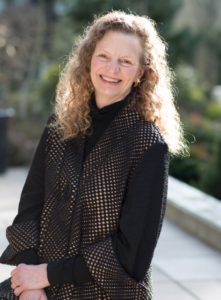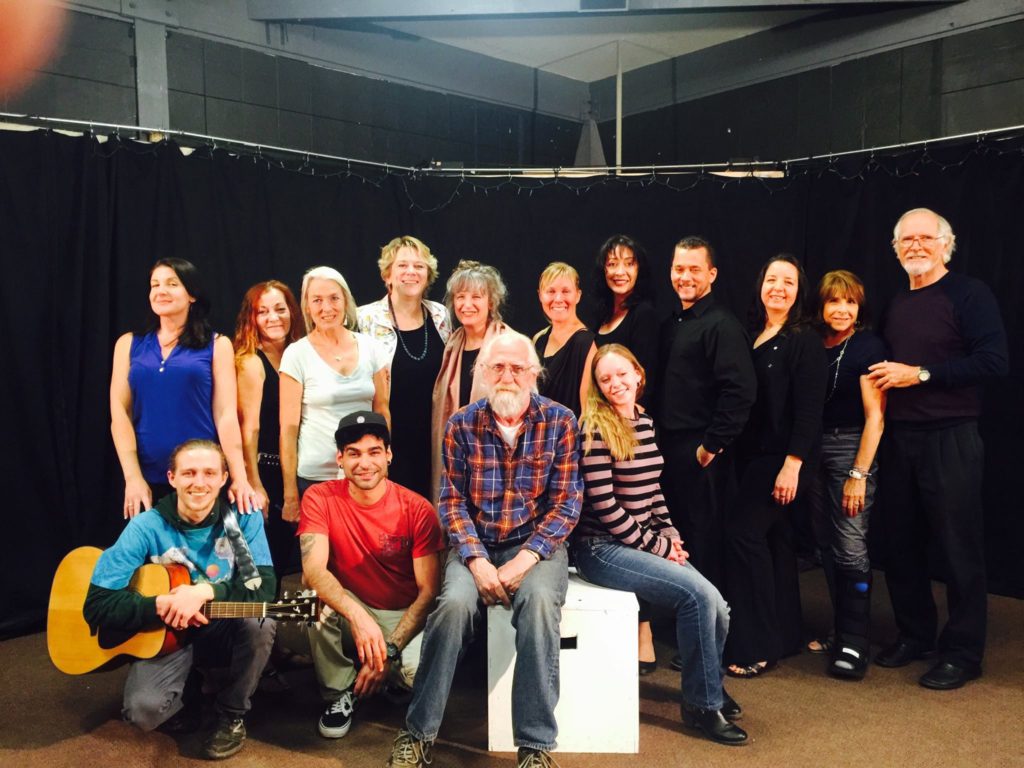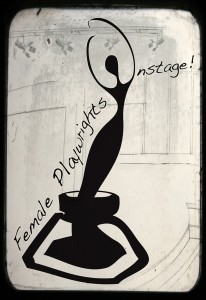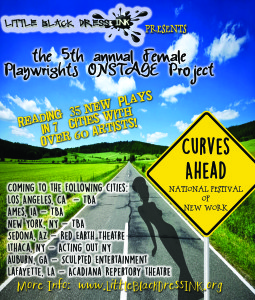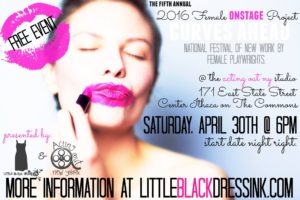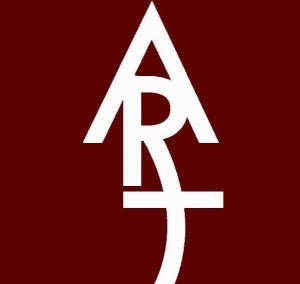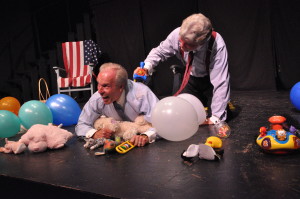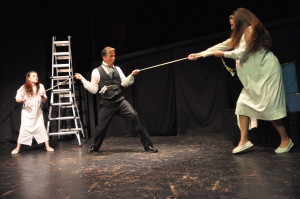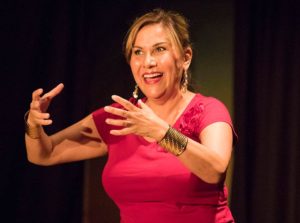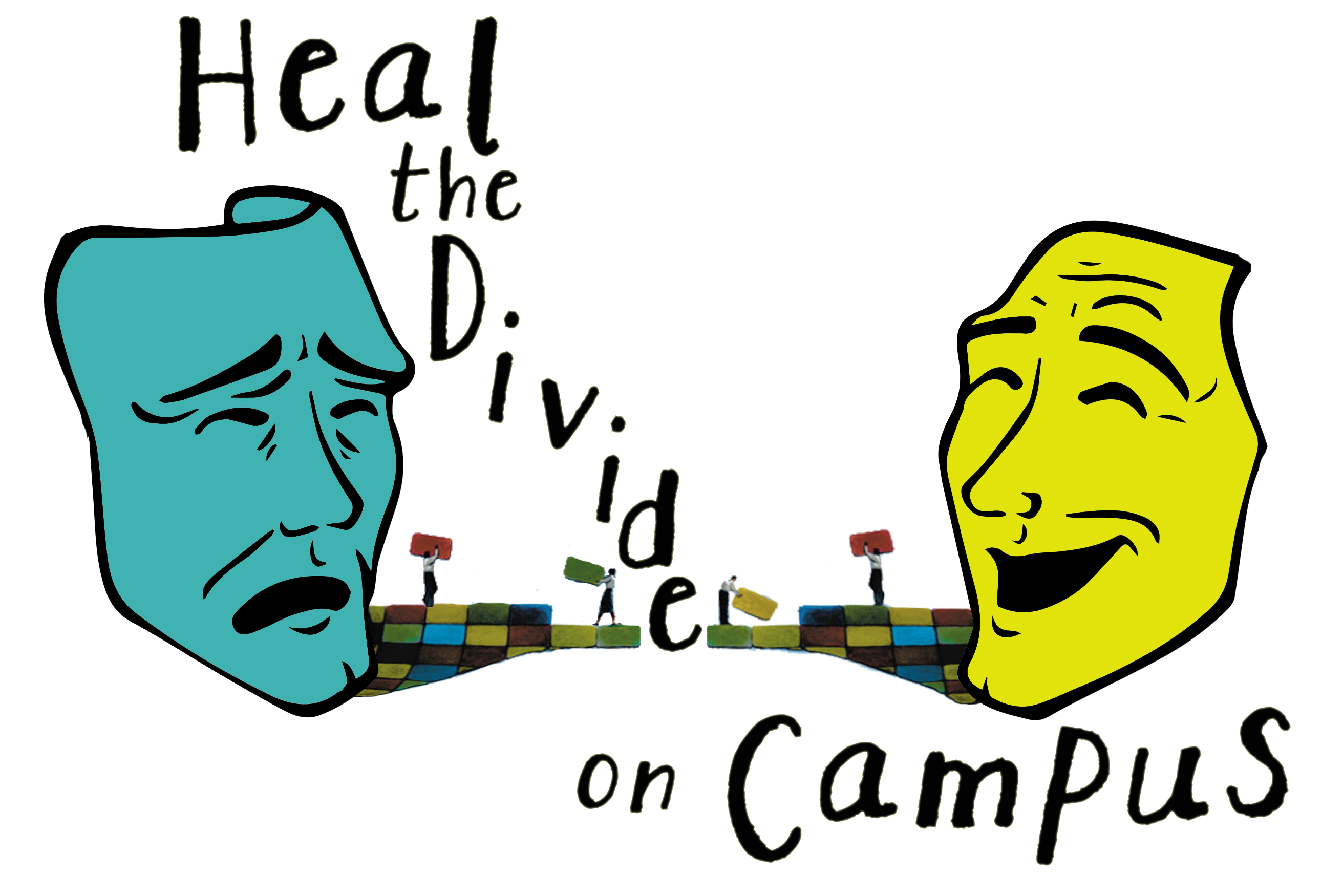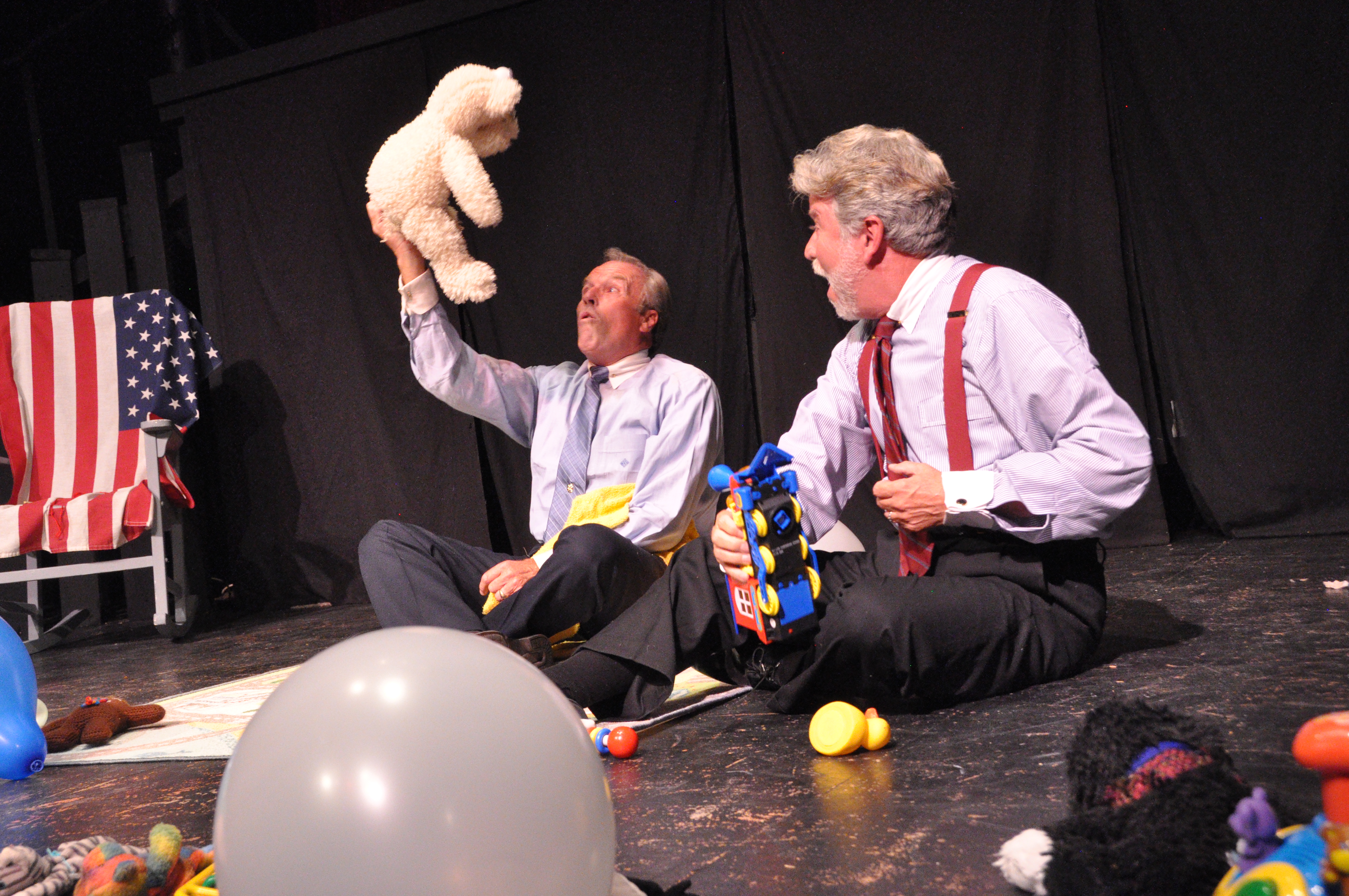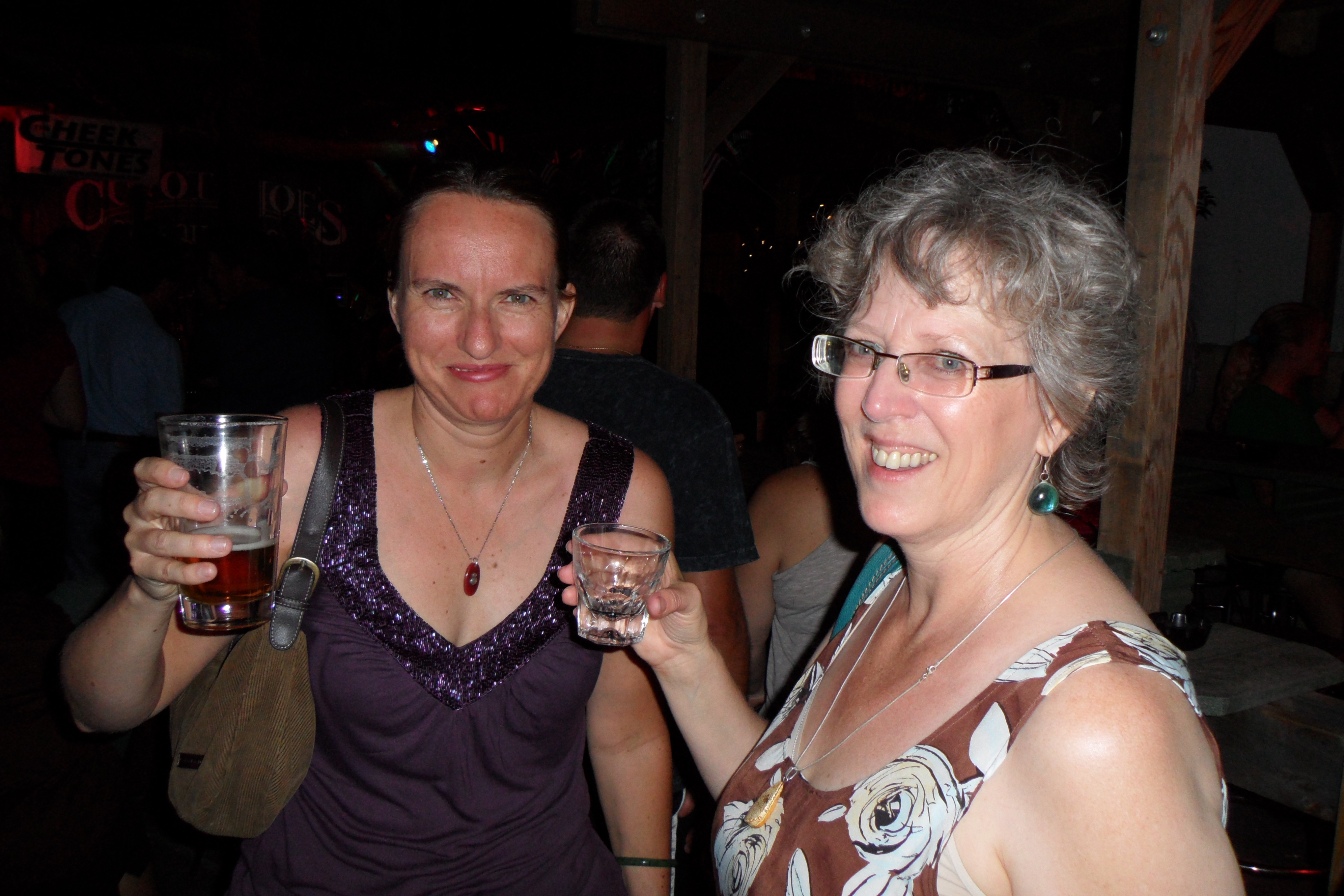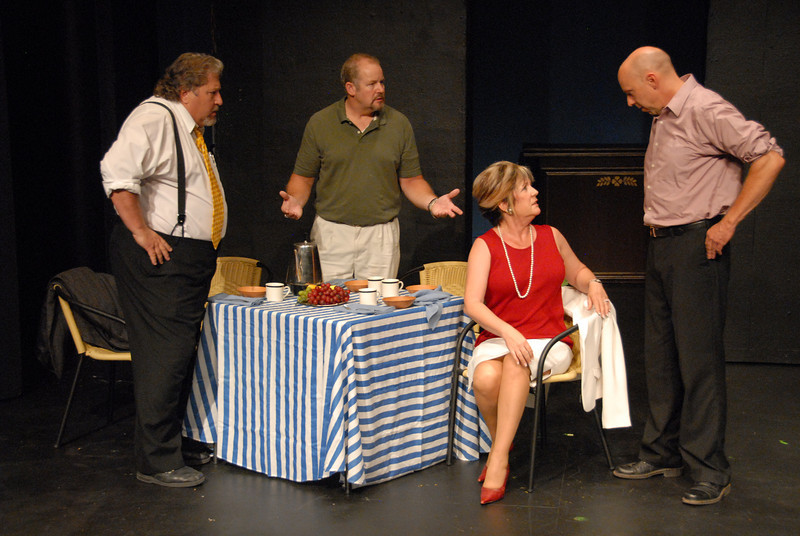Tiffany Antone & Jen Huszcza have a chat (via email)
This is Part III of a three-part conversation playwright Jen Huszcza and I had about Little Black Dress INK’s ONSTAGE Project festival. I want to thank Jen for conceiving of and initiating this conversation, and for getting it into readable shape!
You can read Part I here and Part II here
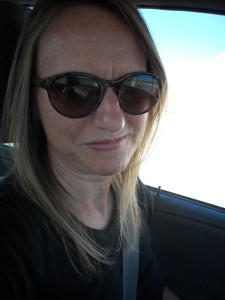 JEN:
JEN:
As we finish this up, I want to talk about being yourself as a writer. So often we writers hear about finding your voice, or finding your truth, blah, blah, blah. Then, when you’ve written a bunch of stuff, there is an expectation (both from yourself and others) that you will just do your thing. I find myself constantly fighting that. Writing does not get easier. It gets harder as I find ways to stay true to myself and what I want to say. Meanwhile, time keeps moving forward and I keep moving forward in life, so I find I have new things to say and new ways to say it. I’ve reached a point in my life where I have failed at a lot, and I find that interesting.
I can talk about where my plays come from or my influences or the circumstances of the world or my life, but at the end of the day, it doesn’t mean a damn when I sit down to work. When I’m writing (and writing is work, not some fluffy little hobby), I am only focused on what I have in front of me and building from there. Then, when I’ve reached the end, I go back and rewrite again and again and again.
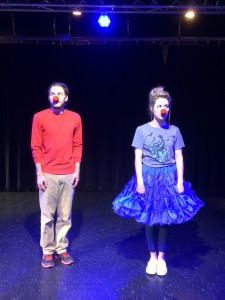
Neal Griffin and Annabelle Veatch star in Kira Rockwell’s WITH MY EYES SHUT, directed by Cason Murphy.
I don’t know if this will be helpful to someone submitting to your festival. Sometimes things done with the most helpful intentions explode in unexpected ways, but I’m an American, so I must remain optimistic. And I am curious about what the next theme for the next festival will be.
TIFFANY:
I love what you said about messy theater. I adore messy theater. In fact, I wanted to make this year’s theme HOT MESS – but my husband very wisely reminded me that since we are still just borrowing stages, I probably shouldn’t seek out scripts that would leave our host theaters digging dirt out of their floorboards for days.
With that in mind, I definitely appreciate your compliments about my writing style. Coming at playwriting from an acting background as I did, I have always felt that plays should be active. I love plays that have to be seen in order to be heard and felt. As an actor and as an audience member, those are the pieces I most respond to. So as a playwright, those are the plays I strive to write. I mean, we live in an age where we can essentially watch theater anytime, anywhere – so if a theater company is going to ask me to shell out a fistful of my hard earned clams, I want to see something on their stage that I can’t just beam to my television/laptop/iPhone. And that’s a tricky standard, because Hollywood can do so very much! But when I see a show that lines up killer story with mesmeric theatricality and emotionally inventive characters, I can’t get enough! I walk out of the theater feeling alive, invigorated, and feeling as though I’ve been privy to something sacred.
We recently attended HAND TO GOD in NYC. I loved it. The play is smart, fierce, and messy as hell – in all the best of ways. Sure, you could turn it into a (probably very enjoyable) film, but the vibrancy and theatrical power of the story would change. There’s just something electrifying about seeing a man violently wrestle with a hand puppet (and his demons) in live theater that you can’t recreate on a screen.
So, I guess you could say that as a writer, I’m always trying to tackle whichever mad question about the human condition that’s seized my mind, with a sense of theatricality. And if that gives way to messiness (as it often-times does), I’m ok with that. Of course, not everyone shares my enthusiasm for theatre that leaves literal marks on stage, haha. So the question becomes, “Where are my people?” As a playwright, where can I find a home amongst like-minded directors, designers, and producers who aren’t afraid of a play that needs a live chicken on stage? Or a house that collapses in on itself at the end of the show? Oftentimes, a director or producer reads a fantastical play and goes “Well, it’s great, but it can’t be done!” and I think that in 99% of those cases, they’re wrong. It’s not that the play itself is impossible – it’s that they’re unable to solve the creative challenges the play represents. Some of my favorite plays were at one time or another deemed “impossible” – until of course someone accepted the challenge to do it.
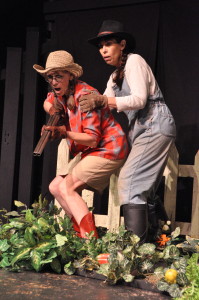
Looking for a Miracle by Karen Murphy w/Karen Murphy and Jean Maissen
And I think that’s really one of the disappointing things about theater today. We live in an age where technological advances make nearly everything possible, theatrically speaking, and yet there are still a lot of theatricians revering talky-talk plays above all else.
This all reminds me of discussions I would have when I was producing the Young Playwrights Festival at the PCA. Every year we’d wind up with some fantastical, crazy, imaginative piece that required cavemen and pirates and space travel or shadow puppets – and someone would say “Well, it’s cute, but it’s not really as good or as smart as this play over here…” with said play being a genuinely well written, but arguably safer, play that follows traditional structure but isn’t particularly challenging. So I’d go to bat for the wacky, “challenge” plays because I knew we could make them happen! I could see that with a little extra careful staging, the right costumes, or some well-chosen music, the piece would come to life in the most delightful of ways. And I was always right! Those plays that I fought to keep in the line up were most often the pieces that got the biggest laughs, or had people talking the most afterwards because they required some theater magic – people love theater magic! They may not have won the “best in show” honors, but they were integral to the success of the line-up, and to the creative energy of the festival at large – because it’s only when someone tells us we can’t do something that we start to question our creative instincts.
Now I’m soap-boxing, haha.
But the point I’m trying to make is that I think a lot of playwrights feel like they “can’t” write wild things because no one will produce them. I think we need to be true to our wild side, because there are other wild things out there who can’t wait to get their wild paws on something meaty, beautiful, and visually mighty. We need to be responsive, we need to pay attention to the market, and we need to write things that will inspire a team of creatives to put their lives on hold in order to produce our little play-babies, but we also need to be bold and not stifle ourselves due to a fear of (or aversion to) spectacle.
Now, that being said, I did not pick HOT MESS as this year’s theme – so don’t send me a bunch of plays that require we hire a cleaning crew when we’re done. I’m still dealing with some financial limitations that mean I can’t flood the stage with rain or mud or a hoarder’s collapsed house, haha. And it’s a festival, so we’re aiming for quick changes between shows. But don’t be afraid to send me plays that take risks, that are adventurous, and that inhabit the theatrical space beyond conversation. I’m always trying to build a diverse line-up, and that only happens when we receive a wide variety of plays.
That being said… This year’s festival theme is now available HERE!
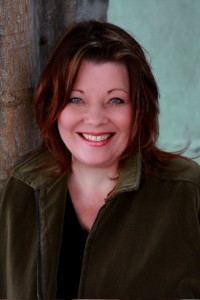 By Guest Blogger and 2016 ONSTAGE Finalist, Melanie Ewbank
By Guest Blogger and 2016 ONSTAGE Finalist, Melanie Ewbank
